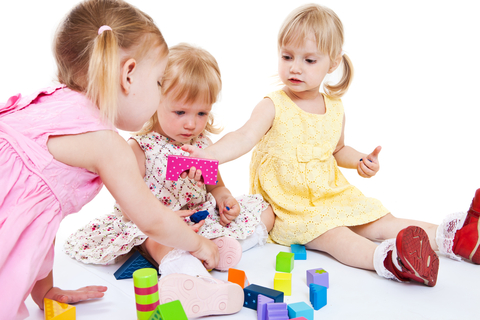Preschool Prep
Five helpful tips to get your preschooler ready for the new school yearThe end of summer has arrived, and it’s time to send your little one off to preschool! Parents are often nervous for this new transition and are curious about what they can do to help their child thrive in a preschool environment. From a speech and language perspective, there are tons of great activities parents can introduce in order to prepare their children to be successful. Here are CSRC’s top 5 skills to target as your preschooler gets ready for a positive year in school.
- Read, Read Read!
It is important to introduce pre-literacy activities to your child before he/she begins school. Of course, we do not expect that children learn to read at this age, but it is a great time to begin introducing concepts such as print awareness (i.e., the ability to recognize that letters and words carry meaning), phonological awareness (e.g., rhyming, recognizing initial sounds, blending sounds together, etc.), letter/sound knowledge and an enriched vocabulary. Most importantly, read to your child! The best way to begin exposing all of these pre-literacy concepts is to actually read.
- Basic concepts (shapes, colors, size)
It is also a good idea to begin exposing your little one to some simple basic concepts. During preschool, the teacher will introduce concepts such as colors, shapes and size concepts. Give your child a head start by pointing out these concepts during his/her day. For example, “Look at your pink pants!” or, “Here is your big teddy bear.” Early exposure will make it easier for him/her to grasp these concepts once they are taught.
- Following directions/routines
Even during early school experiences, children are expected to be able to follow directions. You can help your child adjust to following multi-step directions during a ton of every day activities. For example, at the grocery store, have your child follow 2-step directions (e.g., “Let’s get some milk and then some eggs). You can also prepare your child to adjust to a daily schedule before beginning school during his/her daily routine at home. Visual schedules are a great way to do this while adding some structure to your child’s day. Visual schedules help children to know what to expect next in their day, which is definitely an added bonus!
- Play dates (socialization, separation)
In my opinion, one of the most important skills children learn during preschool is socialization. They will learn how to play with others and begin to show interest in peers. It is a great idea to begin socialization early by planning some time for him/her to play with old and some more unfamiliar peers. You can add a bit of structure to the play by facilitating games and encouraging turn taking, eye contact and reciprocal conversation.
- Functional language (asking to get needs met)
In a classroom environment, your child will need to know how to get his/her needs met using a language. Start early by encouraging your child to use words in order to request what he/she needs (e.g., “I want milk.”). Oftentimes, it is easy to predict what your child needs before he/she has a chance to ask. Try your best to take a step back and wait for him/her to ask independently. In the beginning, it is OK to model this for your child so he/she can grasp the concept of functional language. You can also encourage him/her to ask for help, indicate when “all done” and ask for “more.”

